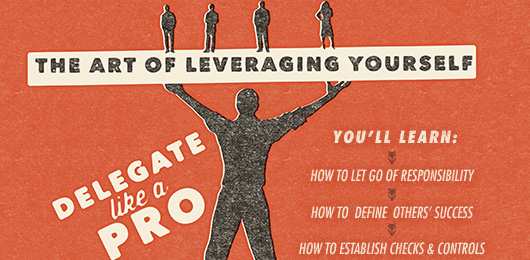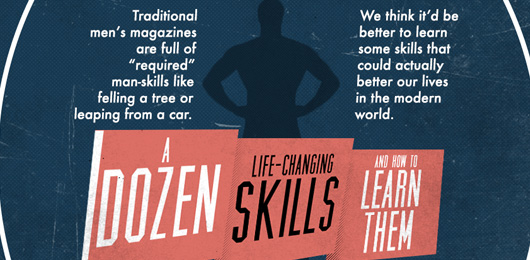Alexandra Levit's “They Don't Teach Corporate in College: A Twenty-Something's Guide to the Business World” is a handy reference guide to read and re-read as you move through the various steps in your career. In the new revised edition, Levit takes time to address some of the new issues that our generation faces when entering into the corporate world. Levit lays out some indispensable pointers for not flubbing things on the outset and some best practices that will help you rise above in the workplace. Ms. Levit was kind enough to answer some of the followup questions we had after reading through the revised edition of “They Don't Teach Corporate in College,” and even posted them on YouTube (Part 1; Part 2; Part 3) for your viewing and listening pleasure, but we've also transcribed her answers below for your reading pleasure. Enjoy.
PRIMER: I found the tips on salary negotiation in Chapter 1 very insightful – personally, it had never even occurred to me to ask for more money at the outset, especially in today's economy. In situations where a candidate is genuinely desperate for a job, is negotiating worth the risk? What if a company calls your bluff? How should one deal with the indignity of having to scrabble back to the original offer?
ALEXANDRA LEVIT: I think this is a fantastic question – even in this economy you should absolutely ask for the money that you want up front! If you don't ask you won't get. And in this economy raises are very few and far between once you're in the company. So, ask for the money and be prepared to accept something that is somewhere in the neighborhood of the in-between point from what you've asked for and what the company has initially offered. If you find your company saying: “You know what, we have to pay you the starting salary – we can't go up,” then, at that point, you have to sit and think about it and say: “Is the experience I'm going to gain at this company worth taking the lower salary?” And if it is, then you take the lower salary. Remember: it can't hurt to ask even if they call your bluff. You always have the option of accepting the lower offer. They're not going to think less of you for asking for more up front unless it's an outrageously high number.
PRIMER: Early in the book, you give the excellent advice to “get past the issue of your [college] major” to avoid pigeonholing yourself career-wise. What advice would you give an undecided major in college who wants to remain flexible in their career choices without completely ignoring their undergraduate degrees? What are you views on grad school?
AL: Well, gotta be honest on this one – I really don't think anyone cares what you majored in in college, folks. The truth is undergraduate majors are carrying less and less importance. So if you're really interested in your major then by all means approach job opportunities that are associated with it, but don't completely limit yourself. There's no way anyone expects you to know what you're going to do with the rest of your life when you're 21 or 22 years old.
As for grad school I feel sort of the same on that. You should never go directly to grad school from undergraduate school because again, you're not ready to make a career decision that is going to have a long lasting impact. Take a few years. Go out in the workforce. Find out the type of work that you enjoy and want to do for the long term. And then figure out: “What is grad school going to bring me in terms of opportunity, in terms of pay, that I'm going to get once I receive this degree?” That's my recommendation: spend a couple years in the workforce and then think about grad school.
PRIMER: I love your explanation of a “corporate persona” and the need to be your own PR person in order to project a mature, competent and professional face at work. But I wonder about the dangers of embracing such duality. Is it healthy to be Captain Corporate from 9 to 5 and Andrew W.K. for the rest of the time? How should one act around work friends that carry over to personal life?
AL: First of all, the corporate persona shouldn't be mistaken. It's not someone that has no relationship to your ordinary personality. The corporate persona is really just the professional version of you. You should absolutely be yourself – just be a professional version of your self. That means don't get drunk at work, don't be too crazy at work, don't schlep around on the Internet at work. Be the “can do” professional person that you are and you'll be fine. You don't need to be someone you're not.
As to how you should act work around work friends who are also personal friends, you'll notice in “They Don't Teach Corporate in College,” I tell about the difference between work friends and real friends. You should really take the time to assess whether work friends can really turn into long term personal friends and you can do this by asking yourself a couple of questions: “Would I have something to talk to about with this person if I ran into them in the supermarket without mentioning work? Would i be able to talk to them for 10 minutes without that subject coming up? Has this person met my significant other? Has this person seen where I live?” If the answers to these questions are “no,” then you want to take a step back and decide whether it's really appropriate to trust that person with your secrets, with your feelings. Just because someone is a work friend doesn't mean they can't develop into a real friend over time, but you do want to tread that line very carefully.
PRIMER: Some of your best advice is to “brown-nose all you want, but make sure you do it sincerely.” But what should one do if a superior is truly revolting and incompetent, but nevertheless wields the power to further your career? Is flattery possible without lying in this case?
AL: Well my first question is: “Is this person truly revolting and incompetent? Or maybe are there are aspects about this person that you simply don't' like?” I encourage you to try and look at your conflict with this person from their perspective. What is this superior person trying to get done and how can you help him or her do it? Chances are he wouldn't have got into this position if he didn't have some redeeming qualities so try and look at those qualities, figure out what they are, and assess how the two of you can work better together. And then just go up to him one day and ask him: “You know what I'd like to work better together. How can we do this? I want to have a good relationship.” Be earnest, be eager to please and I think you'll find the relationship going in a more positive better direction. If someone is so horrible that you absolutely can't stand to work with them then I would try to get yourself out of that situation . Flattery won't get you anywhere but again give it a shot before you truly give up on that person.
PRIMER: One of my co-workers has contracted a pretty severe case of “gofer syndrome” – he's fallen hard on the wrong side of that “fine line between being a hard worker and letting people take advantage of you.” Your advice in the book for sidestepping this scenario is excellent, but what can my colleague do (if anything) to untangle himself from the web of exploitation?
AL: For those you who may have not read “They Don't Teach Corporate in College,” “gofer syndrome” is when you take a task from anyone and everyone – whether it's completely useless or something that's redeeming – and you run around like a chicken with your head cut off not even getting a sense of what your true purpose is but just juggling a million tasks in the air, a lot of times they are as silly as getting coffee. My advice to your friend is to go to his boss, ask his boss: “You know what I'd love to know: What are my daily responsibilities in your mind? What do you think I should be focusing on? What are the top three priorities and who are the people who are designated to give me work at this period in time?” Actually get that laid out in a concrete fashion – that way when someone who is completely unrelated to your friend asks him to get coffee or something silly like that your friend can have the boss be the bad guy instead of him. He'll be able to look like he's not saying no and also prevent himself from becoming a gofer.
PRIMER: Some of the most relevant and useful tips in the book have to do with leveraging Web 2.0 sites like LinkedIn and blogging networks. I especially appreciate your advice to avoid “reinventing the wheel” in the blogosphere. Instead of adding to the clamor of unprofessional and purposeless blogs, you point out that there is “no shortage of already-established outlets just for twenty-something writers that would be grateful for your contributions.” I'd love to hear more about that. Can you offer any tips for getting your foot in the door at an established blog or publication? As a freelance writer myself, I must admit that getting an editor to grant you precious web or print space is no cakewalk. What credentials can someone leverage if they don't have a background in writing?
AL: My answer would be to first of all practice as much as you can on your own. If your company offers writing classes, even if they are internal, take them. Everyone can improve in terms of the writing that they do. I've been writing for a long time and I still use an editor for all of my work so make sure you get into the habit of putting a first draft away and then coming back to it and either having someone else look at it or look at it a second time yourself. That will help your writing become more crisp, more concise and easier to read.
And then when you're ready to venture out into the blogosphere I would start by commenting on other people's blogs. Start by forming cohesive, crisp thoughts in the comments sections of people's blogs and as they get to know you, then you might start thinking about doing a guest post on that person's blog. A lot of people are willing to let new writers do guest posts and that's a great way to introduce your thoughts and maybe even gradually become a contributing writer in those publications.
PRIMER: In Chapter 5, you talk about organization and “The Purposeful Workday.” You gave some excellent advice on managing your inbox and projects. Have you ever tried some of the blogworthy productivity methods – such as David Allen's “Getting Things Done,” and Tim Ferriss' “The 4-Hour Work Week” – and would you recommend anyone else to try them?
AL: Yes indeed, I would recommend these two methods. I'm familiar with both of them. Tim's is a little misleading if you go purely by the title the “The 4-Hour Work Week” you might get the wrong impression. Tim's not advocating that you really work only four hours a week. What he's essentially saying is you should try to get rid of as many busywork tasks as you can to focus on the critically important tasks that are really necessary to get your job done. So, eliminate the trivial many to focus on the critical few. In terms of David Allen, he advocates another technique, that I highly recommend, which is taking a large unmanageable task and breaking it down into small chunks. I think this is great because it helps you become more motivated because you can see the end in sight when the task at hand is very small, whereas when it's large and unwieldy you might think that it's so big that you can't even motivate yourself to get started. So I think both of these techniques are very, very effective and I highly recommend picking up both books.
PRIMER: You briefly talk about the prudence of learning a foreign language. What are the most marketable languages to learn in a global economy? Have you learned any languages independently? Which methods/software/classes do you recommend?
AL: I am very ashamed to say that I only speak English. I know a little bit of French and a little bit of Spanish but I'm not really not fluent in either of those and if there's one thing I could wish for my skill-set it would be to be bilingual. So if you're already bilingual or even trilingual or if you know multiple language, good for you. If you're not though, I highly recommend picking up either Spanish or Chinese. Those seem to be the languages I'm hearing more and more are the most marketable. If you don't know one and you want to to pick it up you might try traveling abroad. I've heard immersing yourself in a language is the best way to become familiar with it. Or try taking a training course maybe your company offers them for free. If you want to stick close to home and by your computer you could try a program such as Rosetta Stone. I've heard really great things about that one.
PRIMER: I really like that you mentioned Emotional Intelligence (EQ) as a sort of foil to your IQ. Where can we learn more about this? Are there methods for measuring our own EQs?
AL: This is a great question and I wish I had a specific answer regarding measurement. I don't think there's yet a way to measure EQ, although I could be wrong – there's a psychological test for everything. But if you are unable to find one, as I've been unable to find one, you may want to try Dr. Hendrie Weisinger's book “Emotional Intelligence at Work.” That was where I learned the concept myself and actually learned practical ways to employ it, which I think is the important thing- not really that you know what your EQ is, but that you know what to do with it. I suggest getting to know your EQ by sitting down and thinking about the types of situations that may get you upset or excited at work and then start to think: “How can I react to various situations when I start feeling these particular emotions?” In that way, you can keep emotions from creeping up on you and perhaps causing a reaction that wouldn't be very good for your career. So, I highly recommend just taking a little bit of time and thinking about yourself – it's really it's just about awareness. For more information I suggest checking out Dr. Weinsinger's book.

AL: I think in fact there are a lot more opportunities for entrepreneurial twenty-somethings – the biggest change I see is in social media. Before, you had to be someone with a lot of business experience in order to start a business, but ever since the dot-com boom in the earlier part of this decade, we have seen twenty-somethings all over the place forming their own businesses. So I think that social media and other types of information technology companies are really leading the way in terms of having effective and dynamic twenty something leaders.
In terms of the challenges, the biggest challenge, I think, that twenty-something entrepreneurs face is going out and starting companies before they are ready. You have to recognize that when you're twenty-one or twenty-two, you don't have the skill-set to be able to have your own business. So, I recommend trying out a whole bunch of things and making mistakes on someone else's dollar before you take all the risks with your own business. So, go out and work for osmeone for a couple years and learn the ropes so when it's time to form your own business, you'll really be ready.
Alexandra Levit is a nationally recognized business and workplace author and speaker. A syndicated columnist for the Wall Street Journal and a blogger for HuffingtonPost.com, Alexandra has authored several books, including the popular They Don't Teach Corporate in College, How'd You Score That Gig? (Random House/Ballantine, 2008) and Success for Hire (ASTD Press, 2008). Alexandra’s book on inspirational career change, Change Your Job, Change Your Life, is due out from Random House/Ballantine in early 2010.

















![It’s Time to Begin Again: 3 Uncomfortable Frameworks That Will Make Your New Year More Meaningful [Audio Essay + Article]](https://www.primermagazine.com/wp-content/uploads/2025/01/begin_again_feature.jpg)

